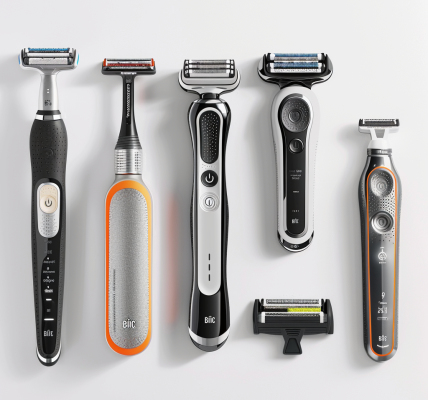Wearable health technology, including fitness bands and smartwatches, is revolutionizing personal fitness and health monitoring. As these devices gain popularity, many individuals are left wondering about their potential downsides. The integration of technology into our daily lives has made it easier than ever to keep track of our health, but it also raises questions about the long-term effects of constant monitoring.
The surge in popularity of wearable health tech can be attributed to its accessibility and affordability. These devices are no longer just for elite athletes; they have become commonplace among everyday users. Many people now wear fitness trackers and smartwatches throughout the day and even during sleep, creating a continuous loop of health data collection. This raises the question: are there hidden health risks associated with this technology?
Wearable health tech serves a multitude of purposes beyond merely tracking fitness. They can monitor vital health metrics, such as heart rate, oxygen saturation, and step count. More advanced models even offer insights into sleep quality and can detect irregular heartbeats, providing users with a comprehensive overview of their health status.
Experts agree that wearable health tech offers numerous benefits. Having immediate access to health data can empower individuals to take charge of their wellness. Some of the key advantages include:
- Sleep Management: Users can analyze their sleep patterns, leading to improved sleep hygiene and overall health.
- Stress Reduction: Monitoring heart rate and physical activity can help users manage stress levels more effectively.
- Motivation: Fitness trackers often include features that encourage users to set and achieve fitness goals, fostering a sense of accomplishment.
- Early Detection: Continuous monitoring can lead to the early identification of potential health issues, allowing for timely intervention.
A study conducted in the UK in 2022 highlighted the positive impact of self-monitoring on health awareness. According to Dr. Harjeevan Kang from the University of Birmingham, individuals who actively tracked their health markers reported a greater sense of responsibility for their overall wellbeing. This proactive approach to health management can lead to healthier lifestyle choices and improved quality of life.
However, while the benefits of wearable health tech are clear, it is essential to consider the potential downsides. One concern is the psychological impact of constant monitoring. For some individuals, the pressure to meet fitness goals or maintain certain health metrics can lead to anxiety and stress. This phenomenon, often referred to as ‘fitness anxiety,’ can counteract the positive effects of these devices.
Moreover, the accuracy of health data provided by wearables can vary. While many devices are equipped with advanced sensors, inaccuracies can occur, leading to misguided health decisions. Users should be cautious about relying solely on these devices for health management and consult healthcare professionals when necessary.
Another aspect to consider is the physical implications of wearing these devices. Some users may experience skin irritation or allergic reactions due to prolonged contact with the materials used in fitness bands and smartwatches. Ensuring proper hygiene and taking breaks from wearing these devices can help mitigate such issues.
As wearable health tech continues to evolve, manufacturers are increasingly focusing on user comfort and data accuracy. Innovations in sensor technology and materials aim to enhance the user experience while minimizing potential health risks. As the market grows, consumers are encouraged to stay informed and choose devices that best suit their needs.
In summary, wearable health technology has transformed the way individuals approach fitness and health monitoring. While the advantages are significant, it is crucial to remain aware of the potential drawbacks. By striking a balance between utilizing these devices and maintaining a healthy mindset, users can harness the power of wearable tech to enhance their overall wellbeing.





